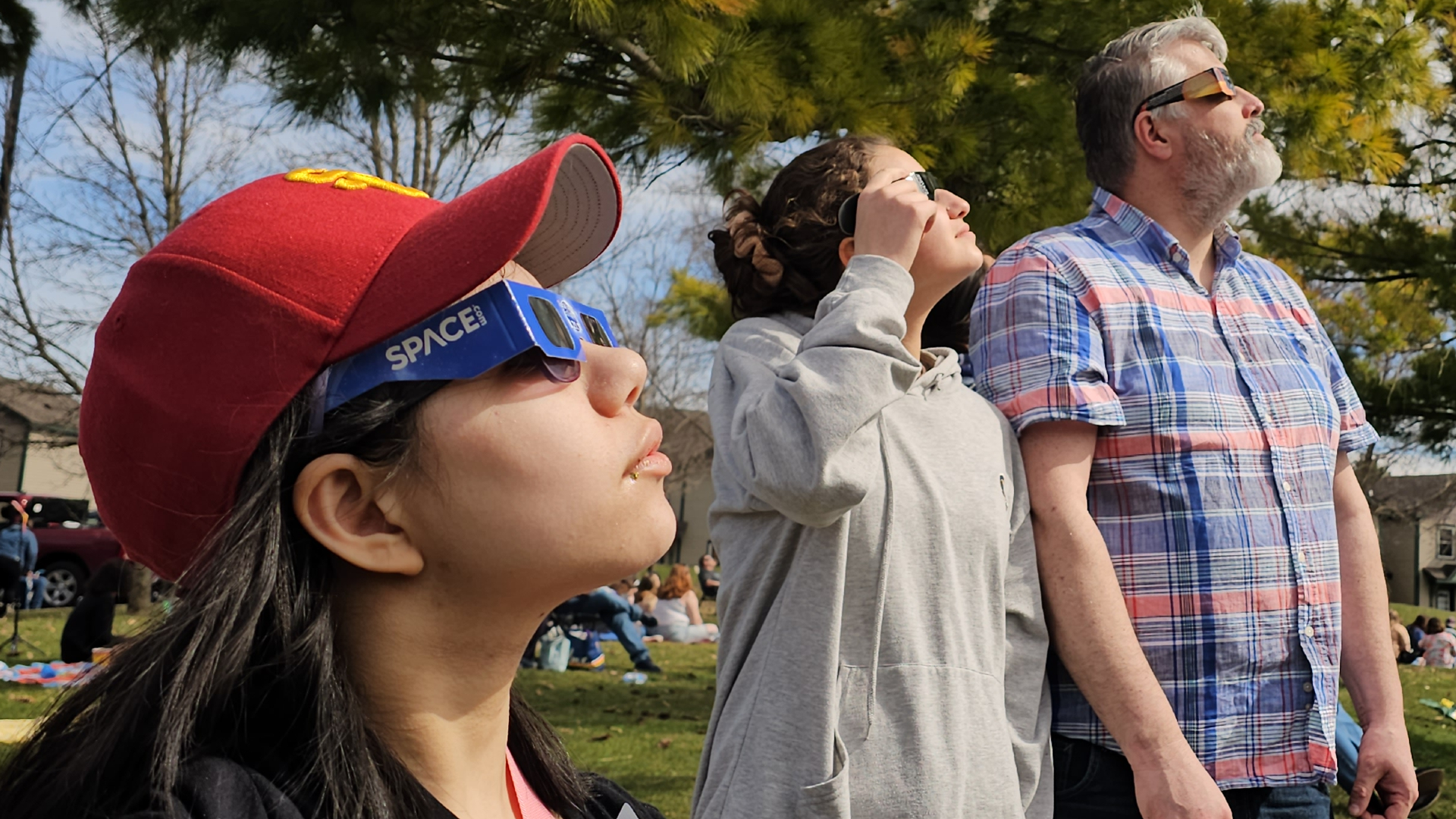
POTSDAM, N.Y. — At first, it seemed like every other college orientation session happening in universities across the country.
A handful of prospective students, my teenage daughter Zadie included, listened intently on the eighth floor of the administration building here while an admissions official shared all the amenities that the State University of New York Potsdam has to offer. In the back of the room, near me, were current university students ready to share their college life experiences. A two-hour tour lay ahead for all of us.
But throughout the presentation ran an undercurrent of excitement. After all, after the tour, we'd see something special: the 2024 total solar eclipse. It was the only time the moon would blot out the sun in the village of Potsdam until the year 2399. That's why my daughter, friends and I drove six hours from New Jersey through New York's Adirondack Mountains to this small college town of 15,000 people.
Well, that's part of the reason. The other? College prep.
Related: These solar eclipse 2024 photos from our readers are amazing
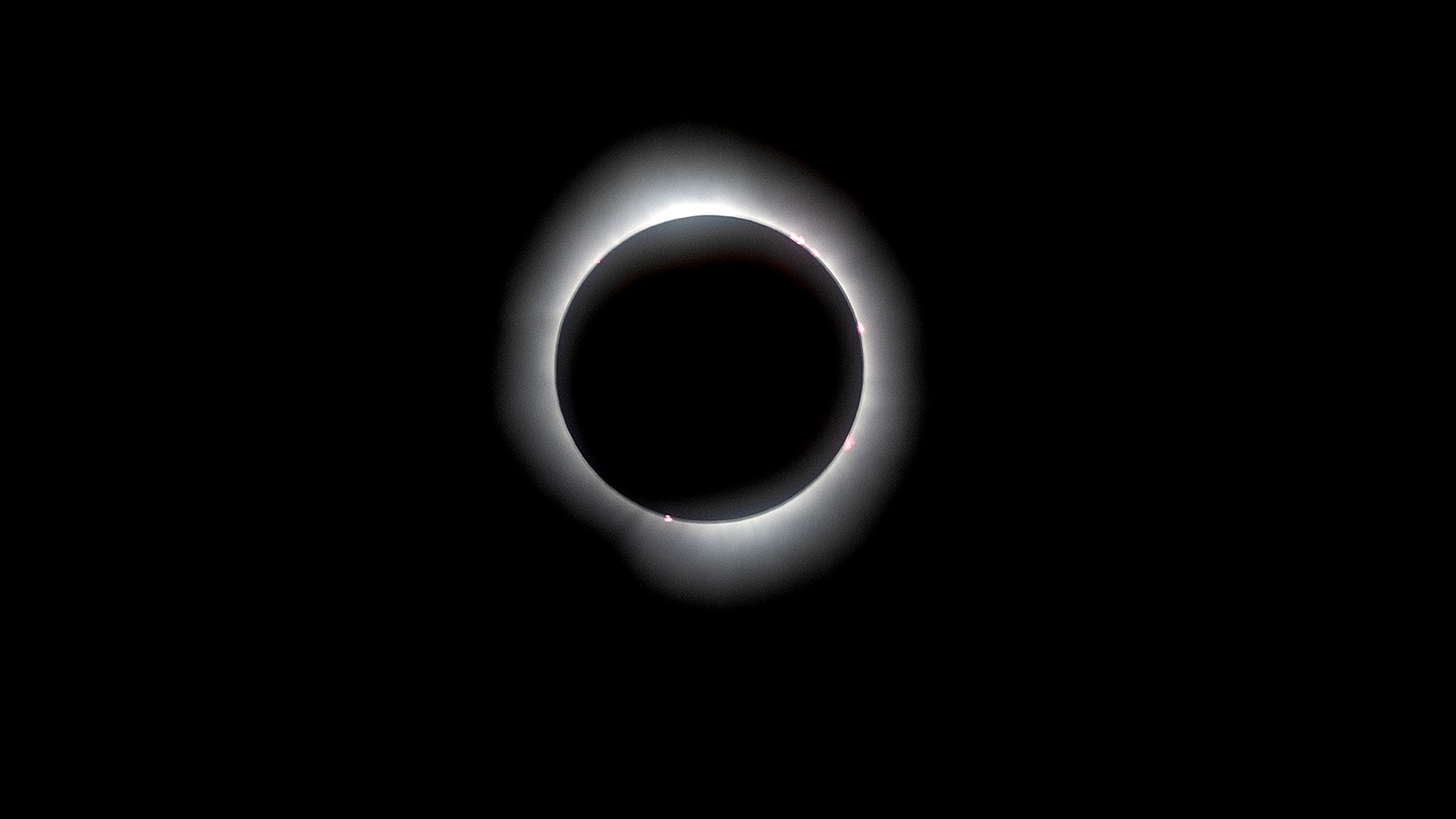
I learned about the school's eclipse festival from friends with ties to the SUNY college system who spotted that SUNY Potsdam was renting out empty dorm rooms for eclipse chasers. We thought it would be a great introduction to college life for our daughters, both of whom are 15, as they start thinking about their future beyond high school. My daughter technically had school on April 8, but I pulled her out to see the eclipse.
"What a perfect event to have a solar eclipse on our campus," SUNY Potsdam President Dr. Suzanne Smith told me after the orientation session, adding that she had actually seen a total solar eclipse once before in 2017 while living in Oregon. "As soon as we learned that we were in the path of totality, we started making plans because we want to show off our campus. We want to show off our faculty and staff. We want to bring potential students to our campus and find ways for our students to do things that are different that they may not see otherwise."
SUNY Potsdam has about 2,500 students, most of whom were just returning from spring break on April 8, spread across its schools of Arts & Science, Education and Professional, and Crane School of Music. Classes are small, with a ratio of 11 students per teacher, per the university's profile.
Unlike nearby Clarkson University, which gave students just the afternoon off for the eclipse, SUNY Potsdam canceled classes entirely for the celestial event. The university even invited its alumni (and pretty much anyone else) to rent out 90 old dorm rooms for just $60 a night, a bargain when compared to nearby hotels going for $370 a night, but you did have to bring your own linens.
"We really wanted to make this a time that we can just come together and celebrate an amazing experience and be together as a community," Smith said. In addition to opening its doors to prospective students, SUNY Potsdam organized an afternoon of school events, including live music, tours and demonstrations to show the eclipse's effects on plants, animals and, well, the rest of us in totality.
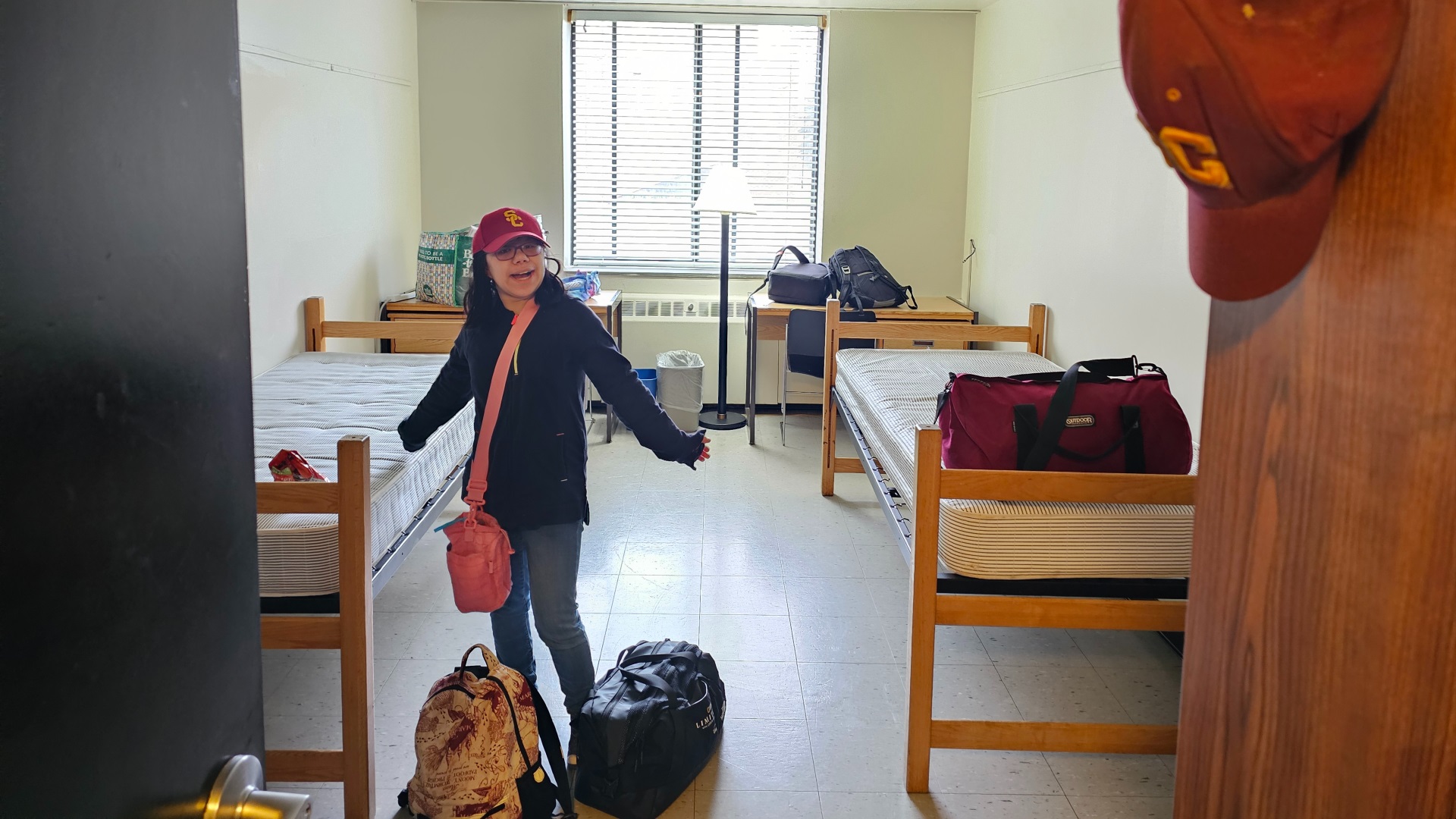
With that, we bunked up in SUNY Potsdam's Knowles Hall North dorm for the event. While my friend Ethan Wheeler and his daughter Catalina brought full sheets and blankets, Zadie and I opted for sleeping bags and pillows to cut down on laundry afterward. It was "cool" to see what life might be like as a college student, Zadie said.
"But like, if I was going to be here for a full semester, I probably would have brought sheets," she added. Maybe a fan, too. That room ran a bit hot.
At first, Zadie wasn't thrilled when I told her we'd be going to college orientation as a sort of pre-game for the solar eclipse. But after touring the school's art and science departments and main library — where we met Ted, a tiny pup who serves as SUNY Potsdam's "Morale Officer" dog — she warmed up. Maybe because Ted's handler was giving out buttons showing the dog wearing solar eclipse glasses.
"This is a nice school," Zadie told me after leaving the library. "There's a lot more to do here than I thought, and I like that the classes are small."
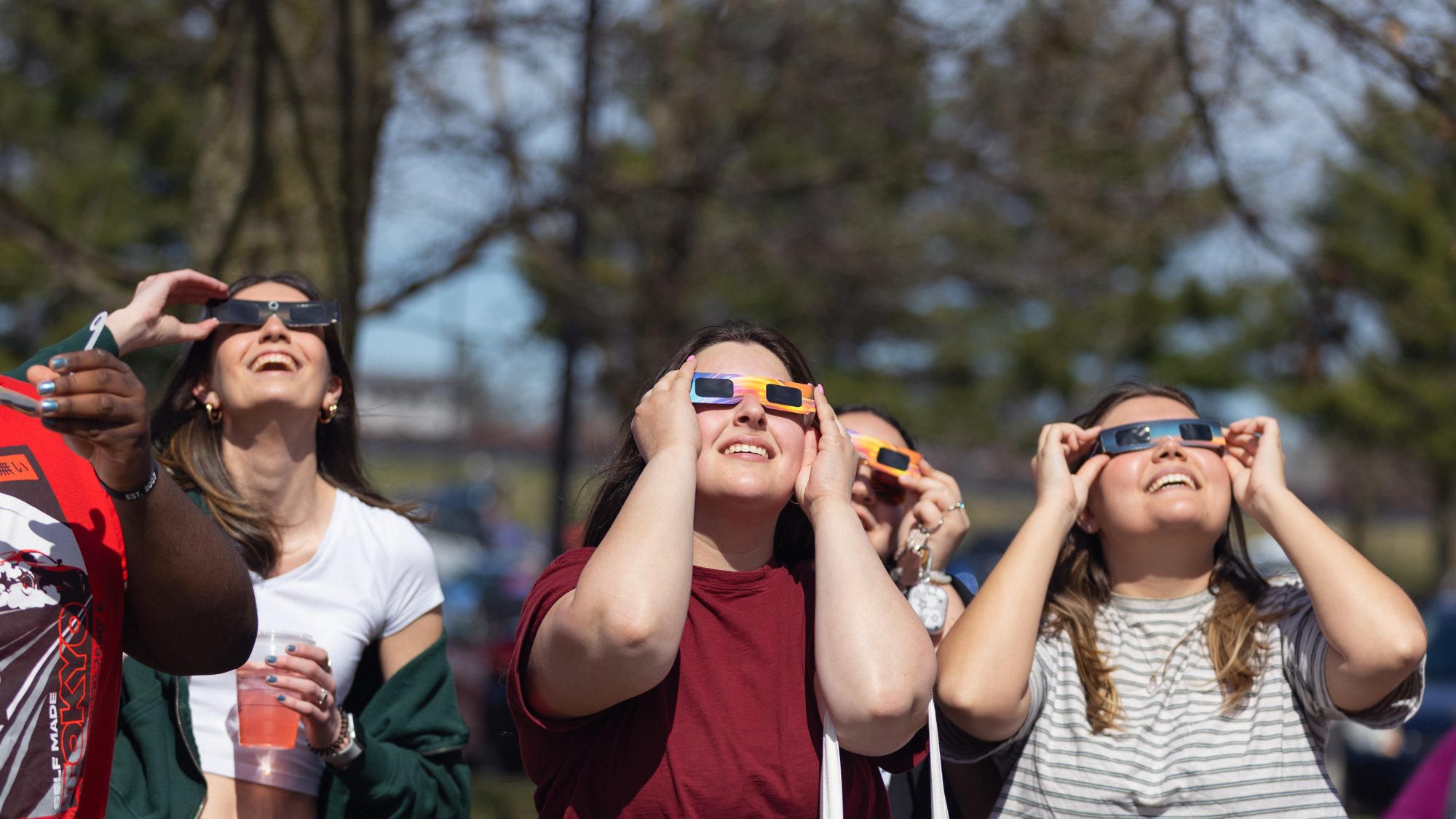
But what of the main event? After all, we were here for a total solar eclipse.
That came at the end of the campus tour, when we joined the hundreds of spectators who had flocked to a school park with a band shell to watch the moon block the sun. A thin layer of clouds had persisted over Potsdam for much of the day, but it did not tarnish the truly spectacular views as the moon eclipsed the sun, leaving us all in awe (and in darkness) for 3 minutes and 14 seconds as its shadow passed over the crowd.
My daughter applauded and cheered, as did we all. In tanks nearby, a group of young quail, two turtles and a nocturnal gecko got very confused.
"The quail thought it was night and went to roost and sleep, and the gecko woke up and was walking around," Zadie said later after asking Dr. Sarah Sirsat, an assistant professor of biology for SUNY Potsdam who brought the animals out, what happened to them.
Related: April 8 solar eclipse: 6 zoos in totality — and why animals react strangely
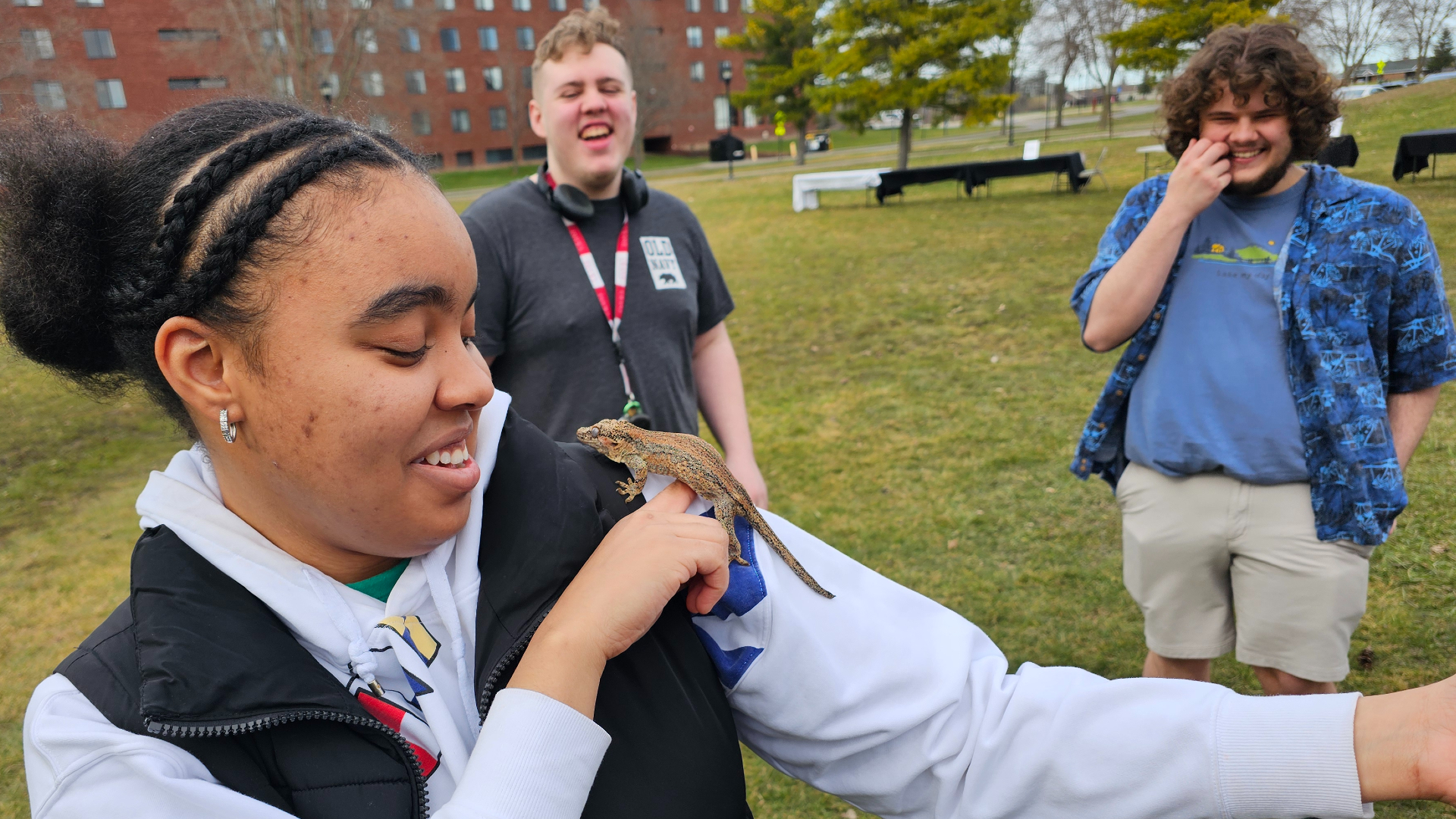
Watching the sun disappear into darkness, and its corona, or outer atmosphere, illuminate a ring around the sun, thrilled the SUNY Potsdam crowd, which cheered as darkness fell and temperatures dropped briefly.
"It was an absolutely amazing experience," our campus tour guide Zachary Byrd, a 22-year-old junior studying public health, said when I caught up with him later. "I was just very star-struck looking at it … it was so cool to see, and I'm glad I got to experience this."
Related: I proposed under the diamond ring of the 2024 total solar eclipse
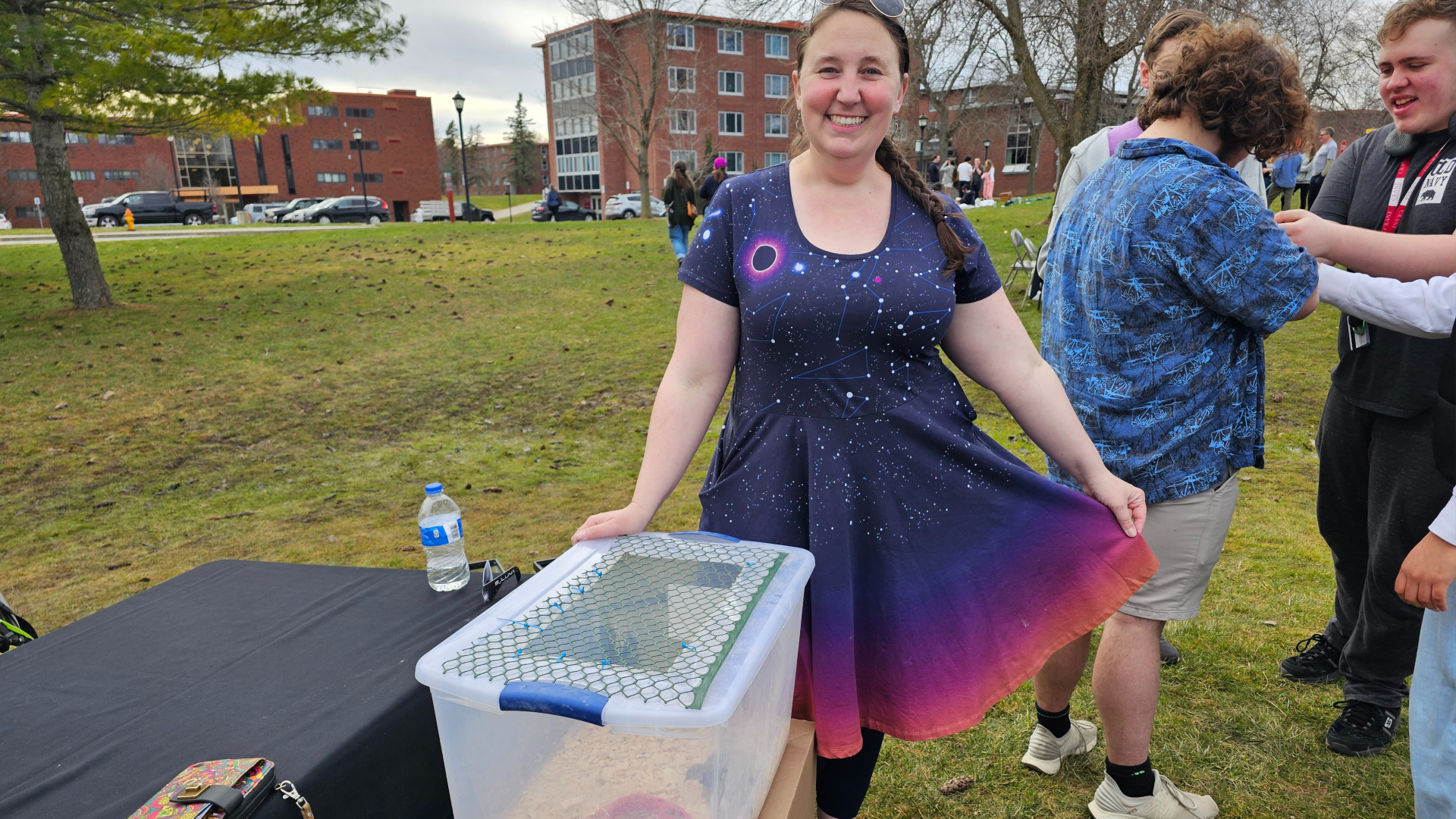
"I was in tears because of the sense of community that was here," said Smith, SUNY Potsdam's president. "Just people from the campus, people from all over the country, here celebrating together enjoying our beautiful campus that we have, an extraordinary event … It doesn't get much better than this."
Alexandra Jacobs Wilke, the village mayor and director of public relations for SUNY Potsdam, was also in tears. She and her husband brought their two young daughters, Edith, 7, and Matilda, 5 (and the family dog Bijou) to watch the eclipse with the college crowd.
"At first we thought that the crowd might not turn out, but we were just so happy to see such different folks from different walks of life," Wilke said.
Some human observers were also a bit flummoxed during totality. Freshman business student Diamond Cromwell, 18, almost missed it entirely. He was standing behind our group as the sky darkened under the moon's shadow.
"I can't see anything," we overheard him saying during totality.
"Oh! You can take your glasses off now!" my friend Ethan called out.
Cromwell snatched the protective solar eclipse glasses off his face and whooped in amazement.
"It was super unreal, I didn't expect that," Cromwell told me after the eclipse. "It definitely blew my expectations out of the park."
Our group was similarly moved.
"That was gorgeous; that really was quite an experience," my friend Ethan Wheeler of Selkirk, New York, who drove with us to the eclipse, told me later. "I'm glad I got to be here."
"That was beautiful, one of the best things I've ever seen," added his daughter Catalina, age 15.
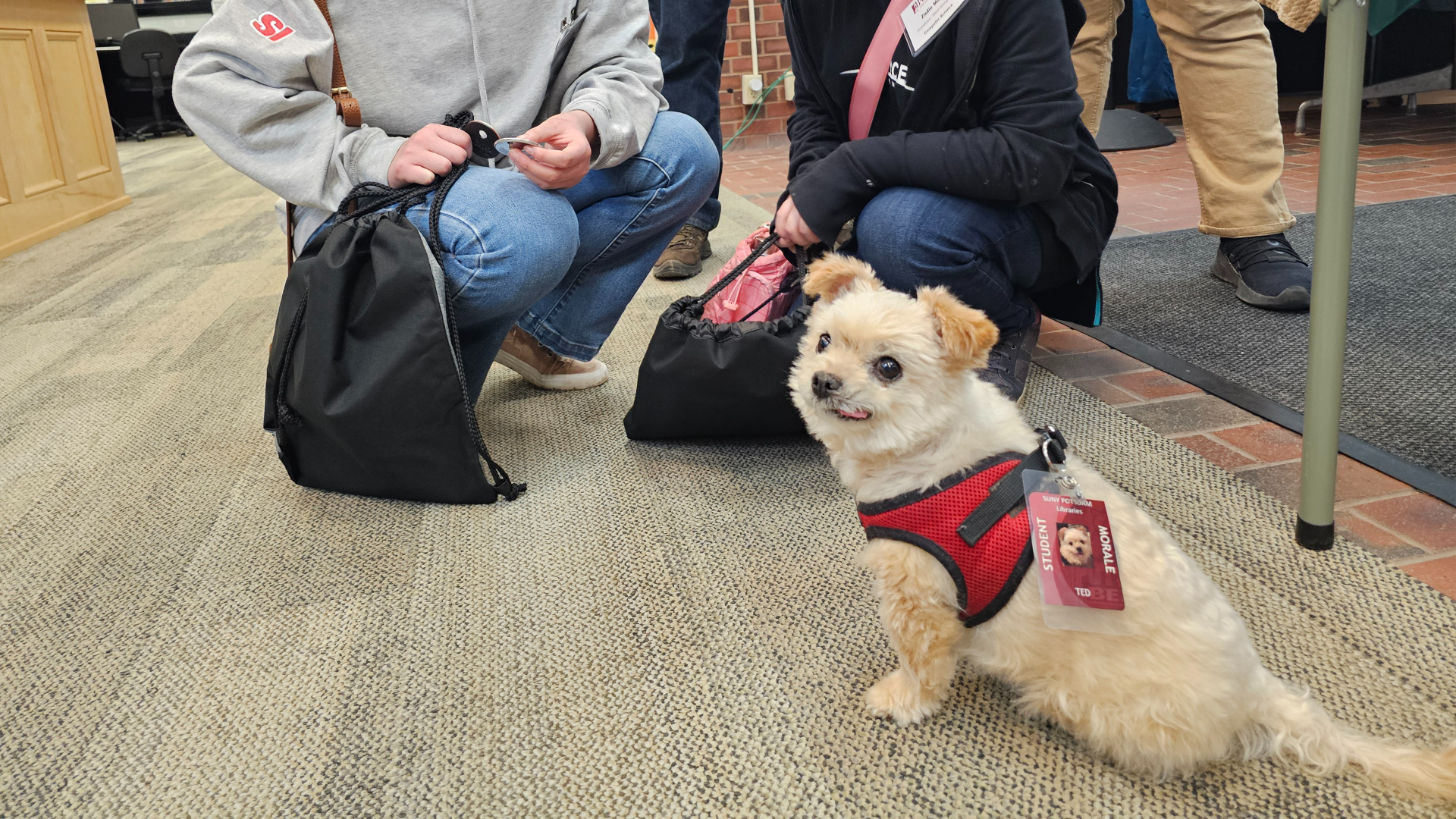
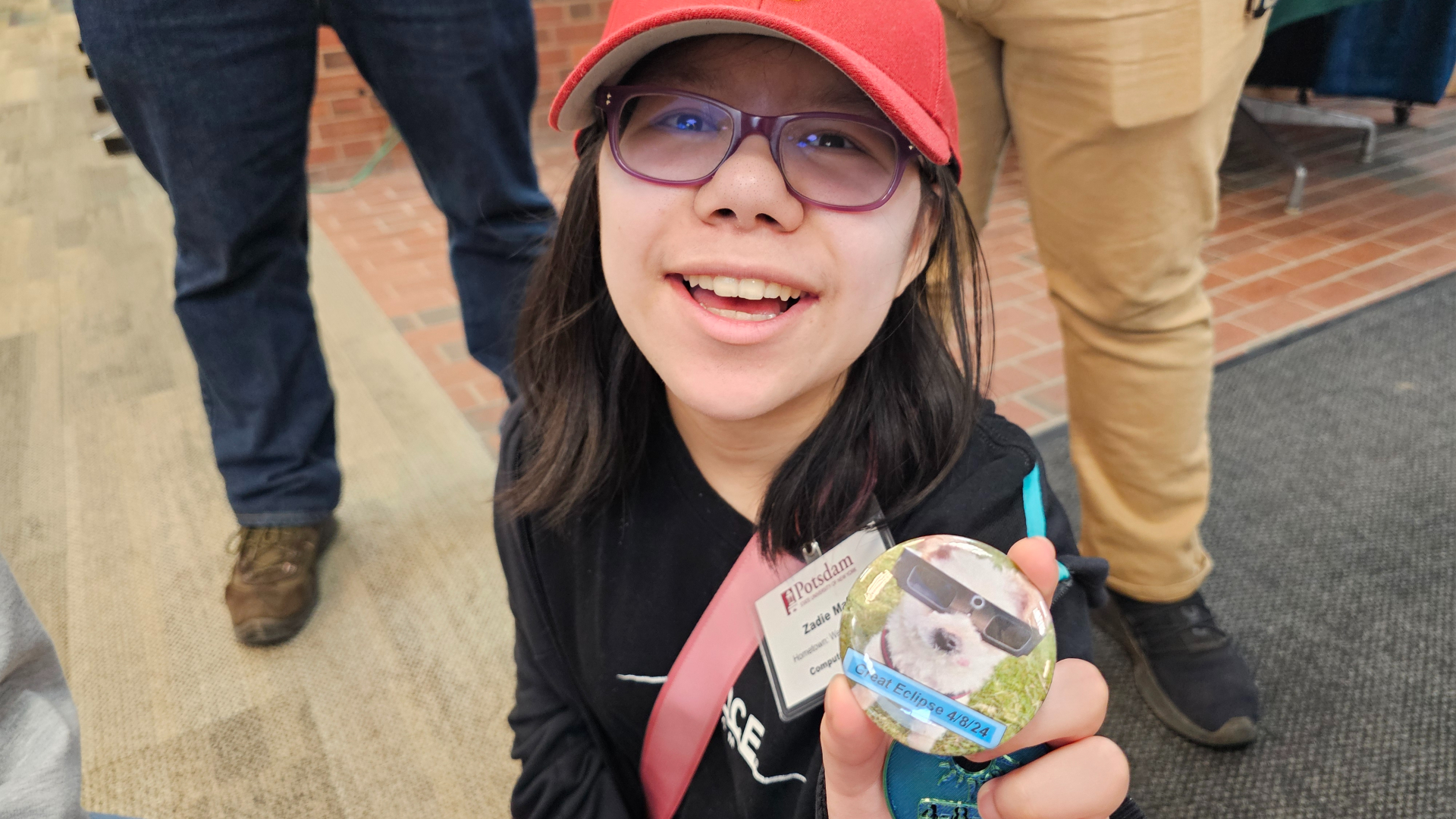
Zadie ended with possibly the biggest understatement of the day.
"It was nice," Zadie said, comparing it to the partial solar eclipse she witnessed from New Jersey in 2017. "The last one, it didn't even cover half the sun! That was cool."
And despite the clouds, the long hours on the road and the longer hours ahead of us, there were no regrets.
"Still, we saw it!" she said as we prepared for what would be a nearly nine-hour drive home due to traffic. "Of course it was worth the drive."
Submit your story photos! If you captured a photo of the April 8 total solar eclipse or any of these strange effects and would like to share it with Space.com's readers, send photos, videos, comments, and your name, location and content usage permission release to spacephotos@space.com.







